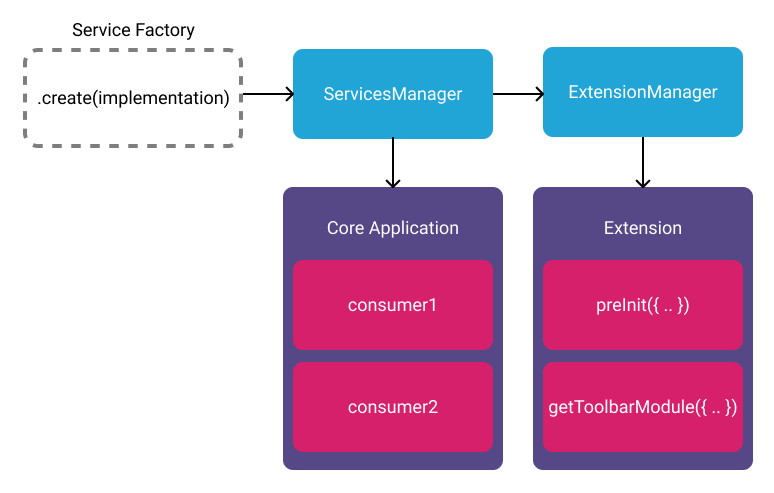Services (default)
Overview
Services are a work in progress. As we are still in the progress of creating a non-ui maintained service, this usage may change.

Example
The simplest service return a new object that has a name property, and
methods/properties that give the service its functionality. The "Factory
Function" that creates the service is provided with the implementation (this is
slightly different for UI Services).
const _speak = () => {
console.warn('Speak is not implemented');
};
/**
* Factory function to create `HelloWorldService`
*
* @param {object} implementation
* @param {function} implementation.speak - Speak's implementation
* @returns HelloWorldService
*/
export default function createHelloWorldService({ speak }) {
return {
name: 'HelloWorldService',
speak: speak || _speak,
};
}
A service, once created, can be registered with the ServicesManager to make it
accessible to extensions. Similarly, the application code can access named
services from the ServicesManager.
// In the application
const speak = () => {
window.alert('HELLO WORLD');
};
const HelloWorldService = createHelloWorldService({ speak });
const servicesManager = new ServicesManager();
servicesManager.registerService(HelloWorldService);
// In an extension
const { HelloWorldService } = servicesManager.services;
if (HelloWorldService) {
HelloWorldService.speak();
}